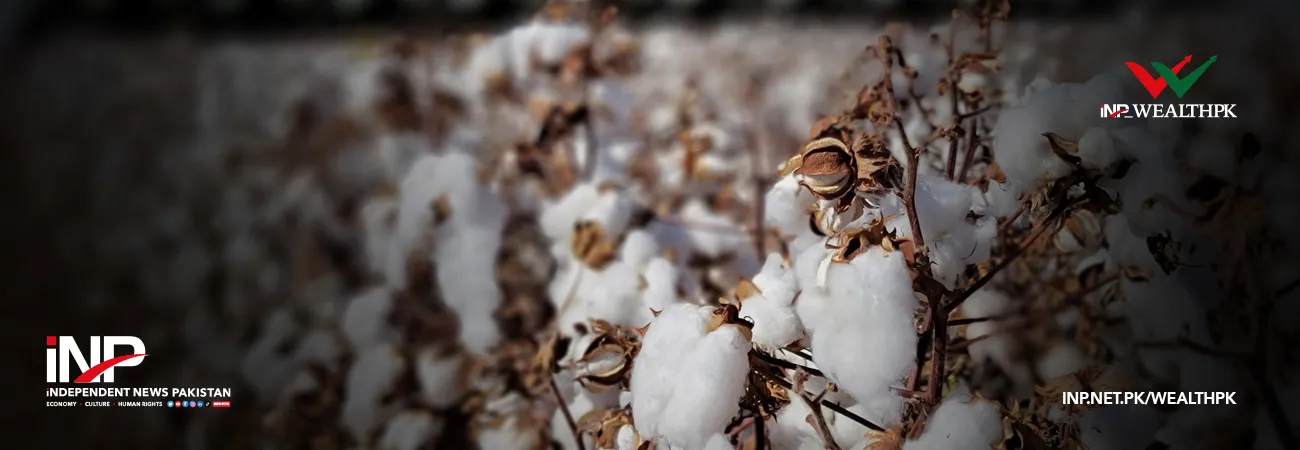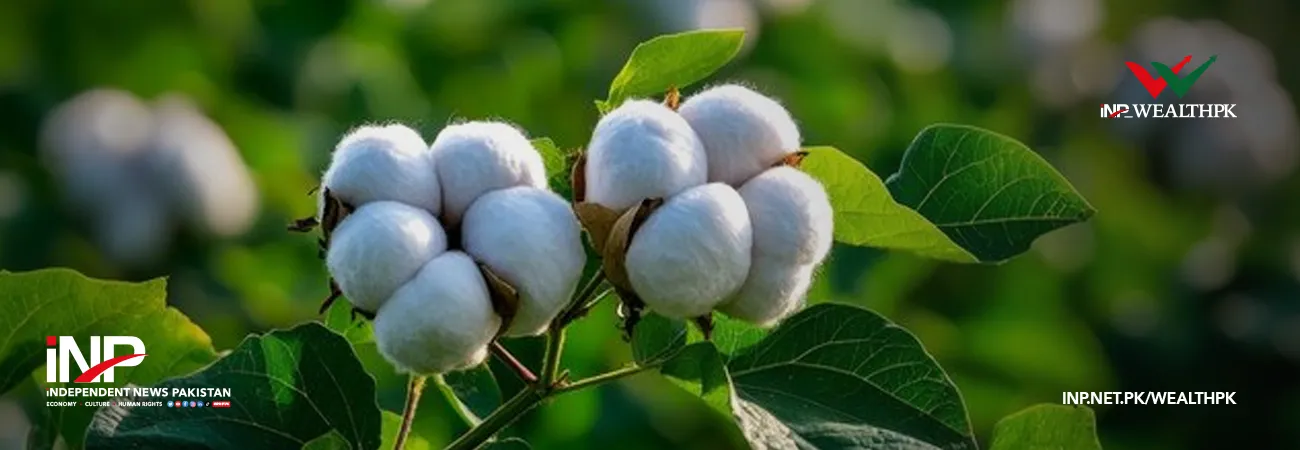INP-WealthPk
Muhammad Saleem
Rapidly changing weather patterns are wreaking havoc on cotton yields, threatening the very backbone of the national economy. Dr Khan, a faculty member of the University of Agriculture Faisalabad, talked to WealthPK about the decline in seed cotton arrivals this year. He said it was a multifaceted issue and the most important factor was the rapidly changing weather. “We are witnessing the impact of climate change on the agriculture sector, which is leading to unpredictable and inconsistent weather patterns.” He said that extreme heat and untimely rains were negatively hitting productivity and changing cultivation patterns.
He said the Pakistan Cotton Ginners Association (PCGA) reported a significant drop in arrivals of cotton seed (Phutti) compared to last year. He said that Phutti equivalent to over 4.2 million bales had reached ginning factories across Pakistan until Oct 31. He pointed out that this represented a decrease of 36.84% compared to the corresponding period last year. Khan said decline in cotton production was creating a plethora of problems for the textile sector, which was the backbone of the national economy. He urged policymakers to foster collaboration between industry, academia and growers to battle the emerging challenges.
“Climate change is impacting every sector of life, and the agriculture sector is particularly vulnerable, requiring immediate practical measures to protect it from nature’s changing behaviour,” he added. Farooq Bajwa, a farmer, said it had become increasingly challenging to grow cotton owing to the unpredictable weather conditions. He said the growers were struggling against difficult odds every season, such as unexpected heat and rains. “We need climate-resilient crops to ensure good productivity, otherwise, farmers and millers will face adverse circumstances.”
Ahmed Ayub, a cotton broker, said climatic challenges affected market dynamics as the reduced arrivals of cotton seed acted as a double-edged sword. He said the market experienced financial strain due to a decline in cotton seed, and this would disturb the price mechanism. He noted that a shortage of supply would increase the prices, which might benefit some farmers for a short period of time. However, he cautioned that the situation would ultimately negatively impact the textile industry, and consumers who rely on affordable cotton products.
“The government needs to play an active role amid the crisis-like situation by introducing supportive and favourable policies. Subsidies for seeds and fertilizers would help farmers manage their costs,” he said. Ayub said dejected farmers might not prefer cotton cultivation in the future. He proposed that a robust framework was crucial to monitor and manage cotton production and trade effectively. He explained that due to lack of this framework, many farmers turned to informal markets, where they received even less support.

Credit: INP-WealthPk













